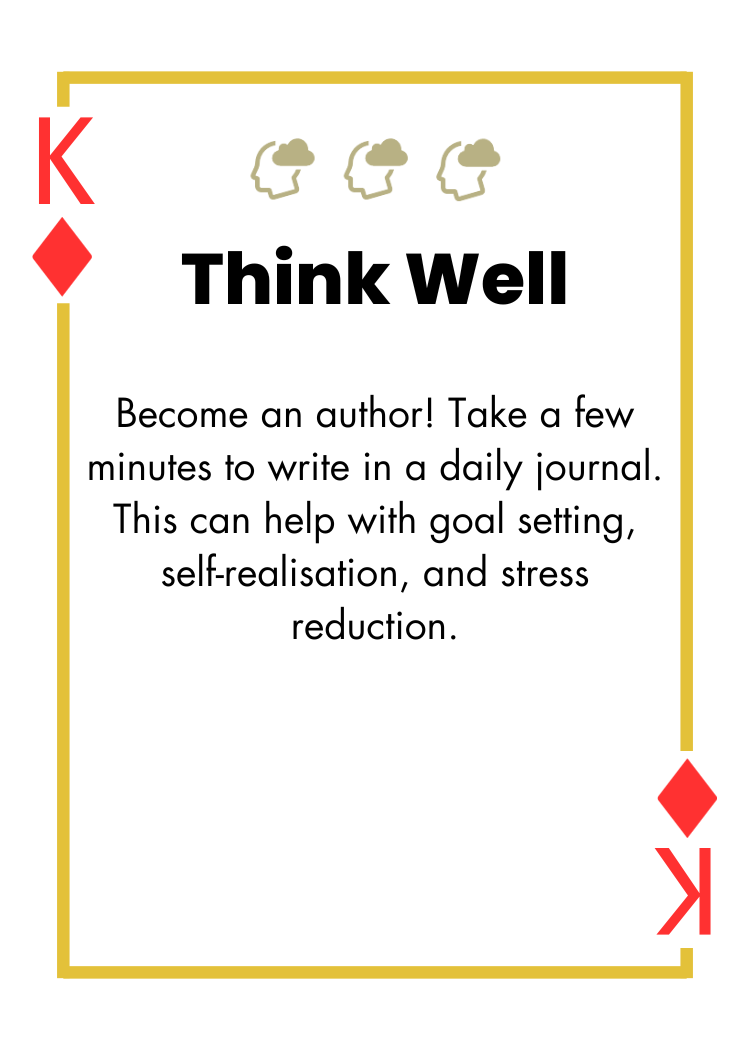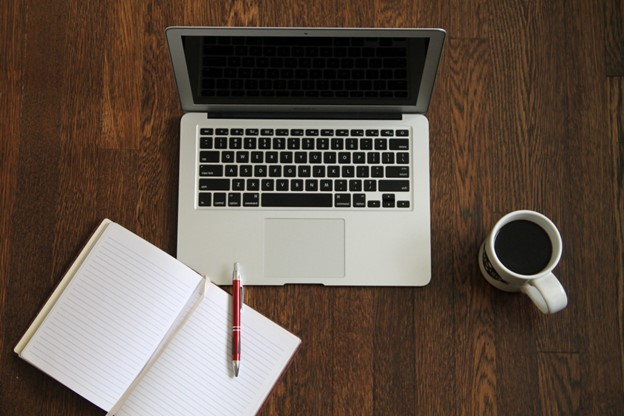King of Diamonds - Journaling

Journaling is a process of recording personal thoughts, daily experiences, and evolving insights through the act of writing (and drawing) by hand or digitally. Either journaling format allows one to review or reread earlier reflections and therefore a progressive interpretation of insights is possible.
Journaling helps to bring the personal story of everyone to life. Consequently, examining our personal story through journaling helps with understanding one’s own life better, coping with the responsibilities of life, and may lead to an overall shift to more positive behaviours.

There really is no single way for a person to journal. The method used is entirely the choice of the individual. Here are a few suggestions on ways to get started:
- Diaries. A diary is typically a notebook, booklet of ruled, or blank pages, or any source where an individual may record their thoughts.
- Unsent letter. Write a letter you know you won’t send where to tell a person exactly how you feel with the knowledge there will be no repercussions.
- Gratitude journal. Write down things in your life that you’re most thankful for.
- Intuition journal. Write down a question you have, then create a response from your intuition.
- Stream-of-consciousness journal. Write down a series of unfiltered flowing thoughts non judgementally.
Journaling can provide a sense of relief, in the same way as the feeling of having a very heavy weight removed from the back or shoulders is also a relief. Besides providing an enjoyable creative outlet, the mental health benefits of journaling are numerous such as stress reduction, emotional processing, personal growth/development, promotion of calm/peace, self-expression, lessened anxiety symptoms and increased cognitive function.
The benefit of journaling occurs as you write since you use the analytical, rational left side of the brain. While your left hemisphere is occupied with the task of writing, your right brain hemisphere which controls more of the creative, emotional side can explore and unleash its highest potential.
The benefit of journaling occurs as you write since you use the analytical, rational left side of the brain. While your left hemisphere is occupied with the task of writing, your right brain hemisphere which controls more of the creative, emotional side can explore and unleash its highest potential.
Journaling helps me to record aspects of sleep, exercise, gratitude, quality of mindfulness meditation and DOTs and DATs on a daily basis – thus, several 1% Club initiatives all at once! Journalling also allows me to vent frustrations, record private thoughts, write about lockdown life during the COVID-19 pandemic, and also jot down ideas for new research and/or business ventures! It is a very powerful and rewarding habit to get into and I recommend everyone tries it for at least a short while.
https://psychcentral.com/lib/the-health-benefits-of-journaling
Carpenter, H. (2021). Ways To Use Journaling To Unwind And De-Stress – Healthy Nurse, Healthy Nation TM. Blog Posted by Holly E Carpenter, RN, BSN in Quality of Life on 01/26/2021 03:19 PM.
Hiemstra, R. (2001). Uses and benefits of journal writing. New directions for adult and continuing education, 2001(90), 19.
Sohal M, Singh P, Dhillon BS, et al. (2022). Efficacy of journaling in the management of mental illness: a systematic review and meta-analysis.
Fam Med Com Health 10:e001154. doi:10.1136/ fmch-2021-001154
Stone, M. (1998). Journaling with clients. Individual Psychology, 54(4), 535.


 See Other Cards!
See Other Cards!